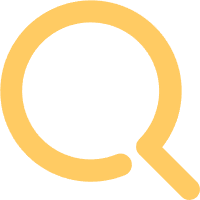

1. In 1493, Christopher Columbus, on his way back to Spain from the Americas, sighted the island of Martinique.
Christopher Columbus, on his return journey to Spain from the Americas, spotted the island of Martinique on January 5, 1493.
2. In 1757, the Treaty of Paris was signed, marking the end of the Seven Years' War between Great Britain and France.
The Treaty of Paris was inked on January 5, 1757, signifying the conclusion of the Seven Years' War between Great Britain and France.
3. In 1838, Samuel Morse demonstrated his telegraph system in New York City.
Samuel Morse presented his telegraph system in New York City on January 5, 1838.
4. In 1850, California was admitted as the 31st state of the United States.
California was accepted as the 31st state of the United States on January 5, 1850.
5. In 1896, Wilhelm Conrad Röntgen discovered X - rays, which he announced on this day.
Wilhelm Conrad Röntgen uncovered X - rays and made the announcement on January 5, 1896.
6. In 1914, Henry Ford introduced the $5 - a - day wage, revolutionizing the auto industry.
Henry Ford rolled out the $5 - a - day wage on January 5, 1914, bringing a revolution to the auto industry.
7. In 1925, the creation of the Council of Europe was first proposed.
The initial proposal for the establishment of the Council of Europe was put forward on January 5, 1925.
8. In 1933, The 20th Amendment to the United States Constitution was ratified, changing the date of presidential inaugurations.
The 20th Amendment to the United States Constitution was approved on January 5, 1933, altering the date of presidential inaugurations.
9. In 1943, Franklin D. Roosevelt proposed the Lend - Lease program in a speech.
Franklin D. Roosevelt suggested the Lend - Lease program in a speech on January 5, 1943.
10. In 1957, the first successful test of an intercontinental ballistic missile (ICBM) was carried out by the United States.
The United States conducted the first successful test of an intercontinental ballistic missile (ICBM) on January 5, 1957.
11. In 1965, The Beatles had their first number - one hit in the United States with "I Want to Hold Your Hand".
On January 5, 1965, The Beatles achieved their first number - one song in the United States with "I Want to Hold Your Hand".
12. In 1972, Apollo 17, the last Apollo moon mission, was launched.
Apollo 17, the final Apollo moon mission, was launched on January 5, 1972.
13. In 1980, the United States boycotted the Moscow Olympics in response to the Soviet invasion of Afghanistan.
The United States initiated a boycott of the Moscow Olympics on January 5, 1980, as a reaction to the Soviet invasion of Afghanistan.
14. In 1991, Boris Yeltsin became the first president of the Russian Federation.
Boris Yeltsin assumed the position of the first president of the Russian Federation on January 5, 1991.
15. In 1992, South Africa's President F. W. de Klerk lifted the ban on the African National Congress.
South Africa's President F. W. de Klerk revoked the ban on the African National Congress on January 5, 1992.
16. In 2005, NASA's Huygens probe landed on Saturn's moon Titan.
NASA's Huygens probe touched down on Saturn's moon Titan on January 5, 2005.
17. In 2010, Haiti was hit by a 7.0 - magnitude earthquake, causing massive destruction.
A 7.0 - magnitude earthquake struck Haiti on January 5, 2010, resulting in extensive destruction.
18. In 2013, North Korea conducted its third nuclear test, drawing international condemnation.
North Korea carried out its third nuclear test on January 5, 2013, which triggered international condemnation.
19. In 2015, The Islamic State of Iraq and the Levant (ISIL) released a video showing the beheading of Japanese journalist Kenji Goto.
The Islamic State of Iraq and the Levant (ISIL) made public a video depicting the beheading of Japanese journalist Kenji Goto on January 5, 2015.
20. In 2019, SpaceX launched the Falcon Heavy rocket for the second time.
SpaceX launched the Falcon Heavy rocket for the second time on January 5, 2019.